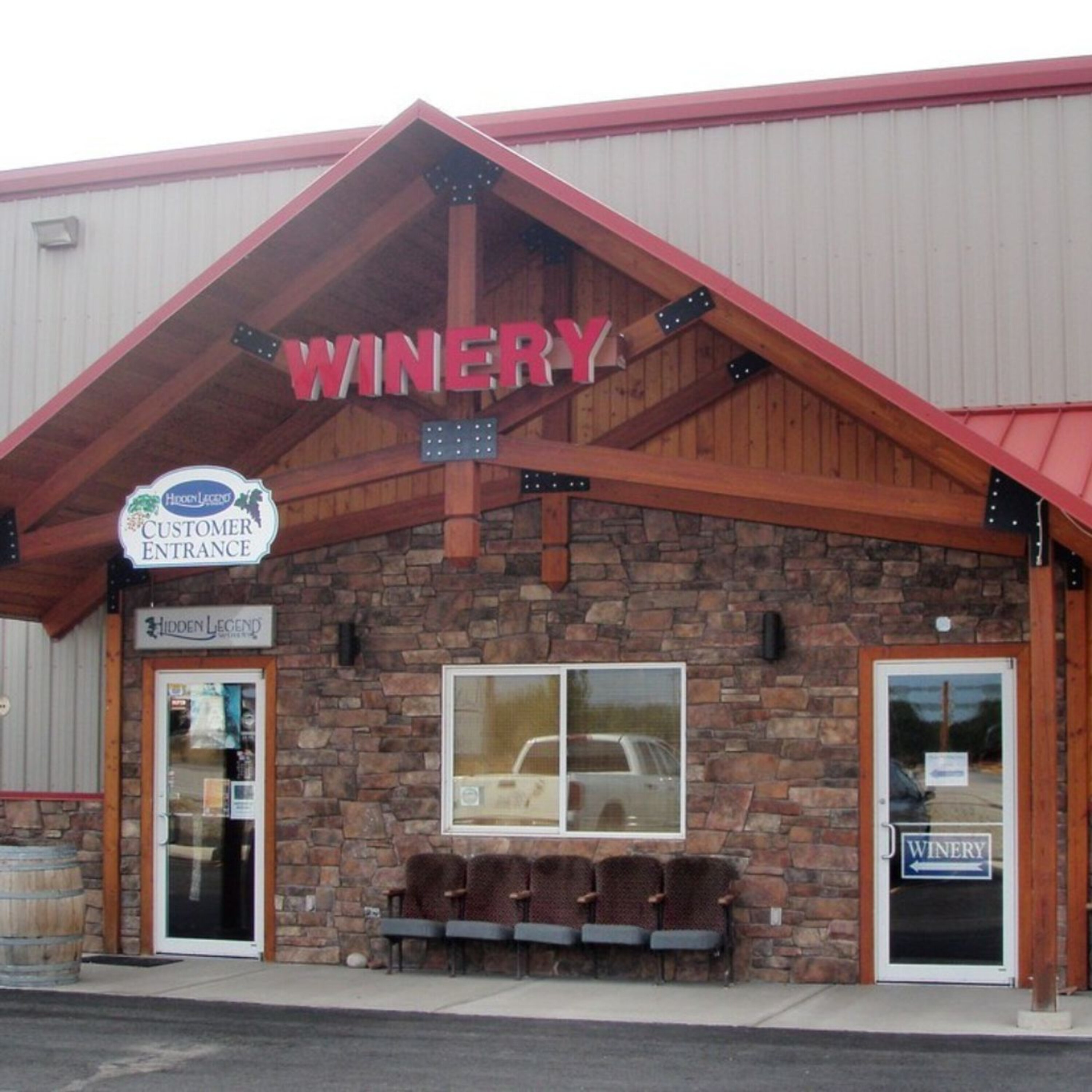Hidden Legend Winery - Victor, Montana Pt. 1


Welcome to The Best 5 Minute Wine Podcast. I'm your host Forrest Kelly from the seed to the glass. Wine has a past. Our aim at The Best 5 Minute Wine Podcast is to look for adventure at wineries around the globe. After all, grape minds think alike. Let's start the adventure. Our featured winery is so basically I opened the Hidden Legend Winery for at Harvard Business School would call the worst possible reason to open a business, and that's because the neighbors thought it was a good idea.
In this episode, we head to the state that has the largest migratory bird in the nation, the only state with a triple divide allowing water to flow into the Pacific, Atlantic and Hudson Bay. We head to Victor, Montana. I'm Ken Shultz and I am the founder and winemaker at Hidden Legend Winery in Victor, Montana. Ok, Ken, let's go back to the beginning. Where did this spark come from? Well, when we were kids, I had an uncle that was a research chemist and a serious hobby winemaker, friends with the head of the technology department at Purdue and various vineyard owners. And things of that nature in his basement had all the right glassware. It was like Frankenstein's laboratory. So I guess that was the spark. Oh, yeah, that was early. You know, under 13, I turned 21. I was going to school in Lausanne, Switzerland. I worked overseas for a number of years and I came back. I got married when I was twenty three and the very first time I owned a closet I made. Me personally, I've lived all over Montana and I just love the big sky. But how about, you know, I was still in Ohio when I got married and we came out here, we got married in seventy five, came out to Montana, saw it, fell in love with the place in seventy six and finally moved here in seventy nine. Well my wife is Norwegian and she thought it looked like Norway and because I had worked there I thought it looked like northern Pakistan but no monkeys or water buffalo. There's something captivating about the Bitterroot Mountains.
You can look off in the distance and see a whole train. Well, you know, at some point when hiking and fishing and vistas and all of you know, the alluring things of Montana kind of settle down to a little bit.
I thought I'd make some wine and evidently I hadn't thought it through very well because there's no grapes. However, I had read The Hobbit and I knew what meat was. And so I came across a bucket of honey that somebody was just disposing of and I thought I'd make mead. I mentioned it to my peers in Ohio and Pennsylvania, and they were like, oh, my God, can no, don't make me. It's horrible. It's thick. Vikings drank it. You'll give winemakers a bad name. I thought, well, you snob's, I'll show you that I can make a mead every bit as complex as your wines. And so I made mead in the mid eighties. Let me just put it this way. I have a driveway that's a half a mile long, three switchbacks up a mountainside. And the guy that used to keep it clear for me in the wintertime would do it twice for a for a bottle.
Ok, let's rewind just a little bit without getting technical, but getting technical just to fill everybody in and be especially neat is often referred to as honey wine, but that's not really accurate. You make the wine with honey water and yeast rather than fruit. So technically meat is kind of in its own category of an alcoholic beverage.
Well, the word mead goes way back to the Sanskrit and the word Megu is honey in Sanskrit. And it's where the English word Medo comes from, which doesn't mean field of flowers. It means we're nectars gathered. And so Mead is actually a shortened meadow.
Well, I imagine that the chemical process is very similar. You're dealing with sugars, but just different kinds of sugars. So are there some nuances to the whole process?
The process is very similar, although we do have to create an environment for the yeast in honey because there's nothing in it but sugar and a grape contains just the right amount of nutrients and trace minerals and acids and sugars in it to make wine. And the powder on the outer outer skin is yeast. So if you break a grape, you can't stop it from making wine, whereas honey needs to be adjusted a bit before it'll ferment. Thank you for listening. I'm Forrest Kelly. This episode of The Best Five Minute Wine podcast was produced by IHYSM If you like the show, please tell your friends and pets and subscribe until next time pour the wine and ponder your next adventure.
This podcast uses the following third-party services for analysis:
Chartable - https://chartable.com/privacy
Podcorn - https://podcorn.com/privacy
Support The Best 5 Minute Wine Podcast: https://www.patreon.com/thebestwinepodcast
See omnystudio.com/listener for privacy information.
